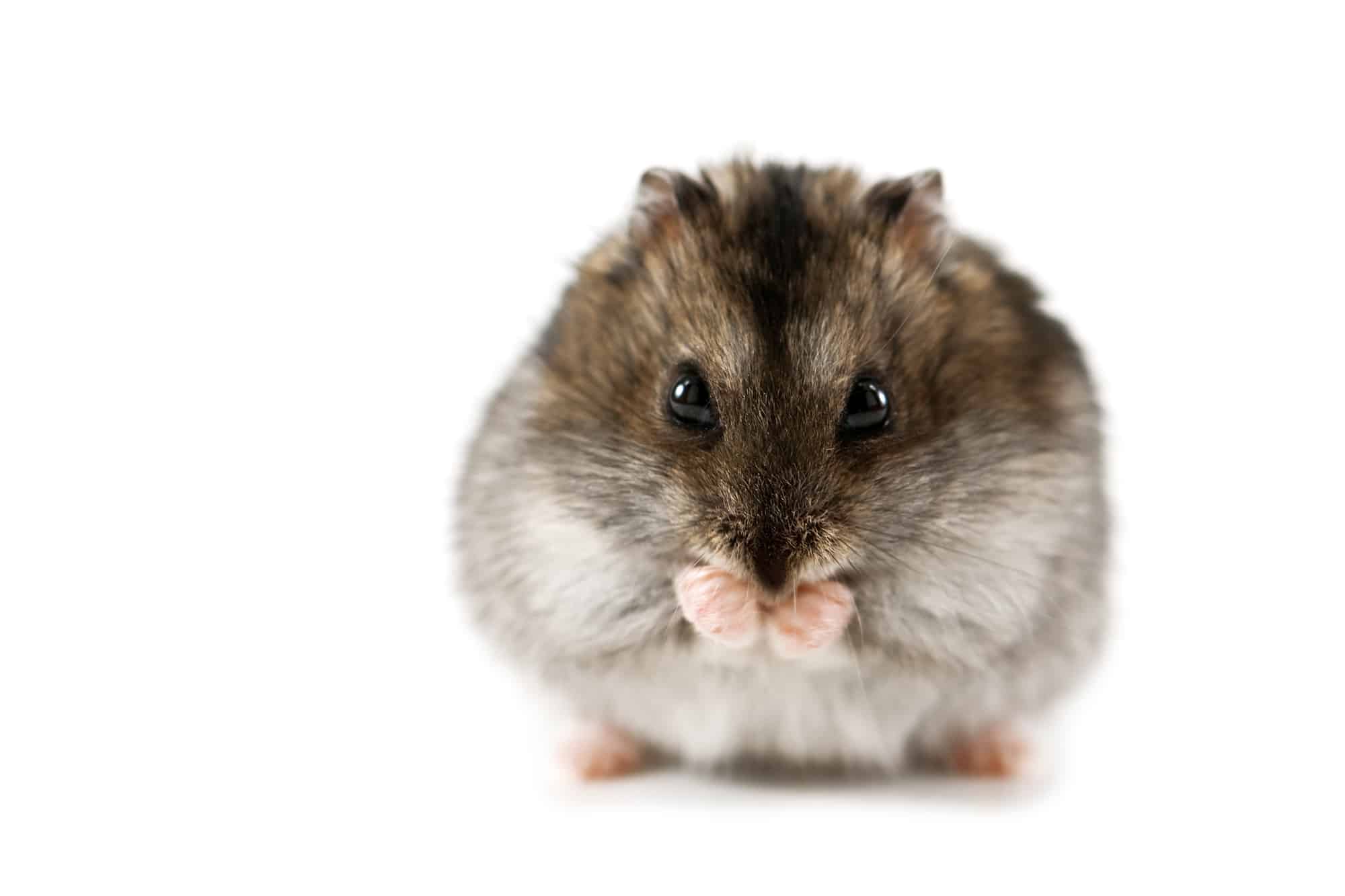Fish is one of the healthiest foods on the planet. It contains many of the nutrients essential for survival. Humans are omnivores, so fish is safe for us to eat. But what about hamsters? Can hamsters eat fish? After all, hamsters are omnivores too. If they can eat fish, how much can they eat? How often can they eat? What are the health benefits and risks of feeding fish to your hamster? Can you use fish only as a healthy treat given occasionally, or can you add fish to your hamster’s daily diet? Read on to find out.
- Nutritional content in fish
- Can you give your hamster fish?
- Different types of hamsters vs. fish
- FAQ
- Can hamsters eat salmon?
- Can hamsters eat sardines?
- Can hamsters eat tuna?
- Can hamsters eat mackarel?
- Can hamsters eat shellfish?
- Can hamsters eat shrimp?
- Can hamsters eat cod?
- Can hamsters eat raw fish?
- Can hamsters eat canned fish?
- Can hamsters eat fried fish?
- Can hamsters eat fish fingers?
- Can hamsters eat fish sticks?
- Can hamsters eat dried fish?
- Can hamsters eat sushi?
- Do hamsters need to eat fish?
- Summary
Nutritional content in fish
Fish is very healthy. It contains many important vitamins and minerals that the body needs. In this section, let’s find out what nutrients 100g of fish contain.
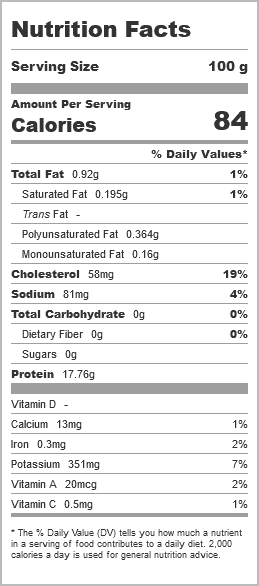
(Source: Fat Secret)
Can you give your hamster fish?
I know you are eager to find out if you can give your hamster fish. But before we find the answer to that question, let’s find out the health benefits and risks of giving fish to your hamster.
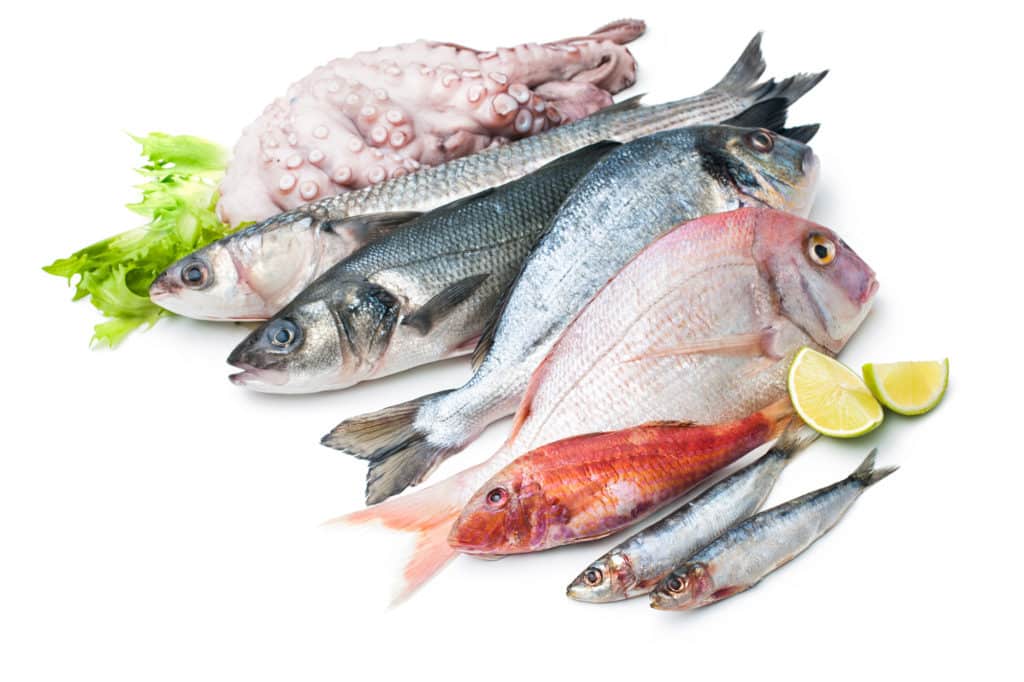
Health benefits of fish
1. Fish is rich in omega-3 fatty acids. The omega-3 fatty acids found in fish are DHA (docosahexaenoic acid) and EPA (eicosapentaenoic acid). Omega-3 fatty acids can help reduce blood pressure, thus improving heart health and reducing the risk of heart attack, strokes, and other causes of sudden death (Source: Washington State Department of Health). Even though omega-3 is present in almost all types of fishes, they are abundant in fatty fishes like salmon, sardines, trout, herring, canned light tuna, canned mackerel, and oysters.
2. According to a study, consumption of fish could slow down cognitive decline associated with aging. The study found that cognitive decline was 10% slower in people who ate fish once a week (Source: PubMed). So, fish consumption can help reduce the risk of diseases like Alzheimer’s disease, dementia, etc.
3. According to some studies, fish might also help prevent depression, anxiety, and bipolar disorders (Source: PubMed). Fish might also reduce inflammation and the incidence of autoimmune disorders.
4. Consumption of fish might also improve sleep quality (Source: Healthline).
5. Fish is an excellent source of Vitamin D, especially fatty fishes like salmon and herring. Since hamsters live in their cages all their life, they don’t get exposure to sunlight. Hence, they can quickly become Vitamin D deficient. Vitamin D helps absorb calcium and phosphorus from the diet, both of which are necessary for the proper development and maintenance of a hamster’s bones. If hamsters don’t get enough Vitamin D, their body responds by dissolving the existing bones to get the calcium and phosphorus it needs. Since the bones in the hip and hind legs are the largest bones in the hamster’s body, they are often the first casualties. As a result, the back legs of the hamster become too weak to support his weight, leading to hind leg paralysis (Source: Animals.mom). Feeding fish or cod liver oil to your hamster can help prevent this medical condition.
6. Fish and omega-3 might also be effective in protecting against vision problems that occur as a result of aging, like age-related macular degeneration (Source: PubMed).
7. Fish is a good source of protein. Protein is essential for building muscles and other body tissues. It is also a great source of energy.
8. Fish contains iodine, which helps create thyroid hormones (Source: Hamster answers). Thyroid hormones regulate the body’s metabolism, the process that converts food into energy. This energy is used by the entire body to keep organs like the heart working properly and is also used for brain development, bone maintenance, digestive function, etc. Iodine might also protect your hamster from some types of cancer.
9. Both Vitamin D and omega-3 fatty acids can help recover faster after an exercise and play a big role in post-exercise muscle regeneration (Source: Eat This, Not That). So, it can help your hamster recover faster after running on hamster wheels the entire day.
10. Even though not in huge amounts, fish contains minerals like iron, zinc, and magnesium, which are all necessary for your hamster’s well-being.
11. Fish contains another mineral called selenium. Selenium acts as an antioxidant in the body fighting against oxidative stress, which causes chronic diseases. Selenium might also be beneficial for the health of the thyroid glands. It might even lower the risk of heart disease and neurological diseases (Source: The Healthy Fish).
Risks
Fish might be a healthy food to add to your or your hamster’s diet. But like all other good things, too much fish can be dangerous. Of particular importance are the following risks:
1. The biggest risk of eating too much fish is mercury poisoning. Mercury is released into the atmosphere due to the burning of fossil fuels, especially coal. From the atmosphere, rainfall brings mercury onto the earth’s surface and into water bodies, like rivers, lakes, oceans, etc. Sometimes mercury is also found in the industrial waste directly discharged into rivers and oceans. But this form of mercury is not dangerous to living beings. However, mercury is converted into methyl mercury in the ocean, probably by anaerobic bacteria, which is then consumed by the phytoplankton in the ocean.
Small fishes eat this phytoplankton, and big fishes like sharks eat the small fishes. Thus, methyl mercury spreads itself into the marine food chain. Methyl Mercury doesn’t leave the body of an organism easily. So, as we go up the food chain, the concentration of Methyl Mercury in the organism builds up because the methyl mercury in the small fishes accumulates in the big fishes which eat them. Hence, the concentration of methyl mercury is highest at the top of the marine food chain.
For example, predator fishes like tuna contain almost 10 million times more methyl mercury than the water surrounding them (Source: Oceanus). So, predator fishes are the most dangerous for humans and hamsters to eat. So, consuming fish like these too often can cause mercury poisoning for our poor hamsters and also for us. Mercury poisoning can cause problems like impaired motor skills, difficulties in thinking, and physical unawareness of the surroundings (Source: Medical News Today).
2. Besides mercury, fishes might contain other contaminants as well. Due to various reasons, like industrial and municipal discharges, stormwater runoff, and agricultural practices, harmful chemicals get deposited in water bodies like lakes, streams, rivers, and oceans. The fishes that live in these water bodies absorb these contaminants such as Polychlorinated biphenyls (which can cause skin diseases, liver cancer, etc.), Polybrominated Diphenyl Ethers (which can cause problems in the brain development of the fetus, alter the levels of thyroid and other hormones, etc.), dioxins (which can cause cancer, reproductive problems, damage to the immune system, etc.), and chlorinated pesticides (Source: 1, 2, 3, & 4). Once a water body is contaminated, the contaminants settle to the bottom. So, fishes that dwell near the bottom of these water bodies are likely to have higher levels of these chemicals by eating them than those that dwell near the surface.
3. Besides mercury and other contaminants, fishes can also contain a high amount of sodium. Too much sodium can increase blood pressure, cause heart and kidney diseases, and increase the risk of stroke. It can also deplete the calcium in the body, making bones and teeth weak.
4. Another problem that can be caused by eating too much fish is the absorption of antibiotics from fish. When fish are raised on farms, they live in limited space. So, antibiotics are given to fish to prevent bacteria from spreading (For example, when one fish gets infected). Since there is no regulation for the dose of antibiotics that can be given to fish in fish farms, this is a severe problem. But it doesn’t mean that wild fish will not contain any antibiotics. They can still absorb antibiotics from the toxic waste in water bodies. But the amount of antibiotics is unquestionably higher in farmed fish than in wild fish. Too much antibiotics in the body can kill the good bacteria in the gut, make the good bacteria go bad, and make the bad bacteria resistant to antibiotics (Source: Healthline).
Now that we have found out the health benefits and risks of feeding fish to your hamster, let’s go ahead and find out if you can give fish to your hamster.
Different types of hamsters vs. fish
There are different types of hamsters. They differ in size, habits, and the diseases they are prone to. So, to find out if hamsters can eat fish, we have to look at each pet species separately. Therefore, in this section, let’s look at the different species of pet hamsters and how much fish each species can eat.
Can Campbell dwarf hamsters eat fish?
Yes, Campbell dwarf hamsters can eat fish. The amount of fish they eat depends on the amount of methyl mercury their bodies can handle. Even though methyl mercury is dangerous, a hamster’s body can demethylate it and remove it through feces, urine, hair, and milk. But that doesn’t mean they can eat a lot of fish. Their tiny bodies can remove only so much toxins. Even humans should not eat fish more than twice a week. So, limit the amount of fish you give your Campbell hamsters to a teaspoon a month (Source: Just Hamsters). If you give them any more, they might get poisoned by mercury or other chemicals.
Can Chinese dwarf hamsters eat fish?
Yes, Chinese hamsters can also eat fish. But just as the name indicates, Chinese dwarf hamsters are also dwarf hamsters. So, they shouldn’t be fed too much fish. About a teaspoon a month is enough for them to reap the health benefits from fish while avoiding the risks that come with overeating.
Can Russian dwarf hamsters eat fish?
Yes, Russian dwarf hamsters (also known as Djungarian or Winter White hamsters) can also eat fish. They can eat about a teaspoon of fish once a month.
Can Roborovski hamsters eat fish?
Yes, Roborovski hamsters can also eat fish. But they are the smallest species of hamsters. However, they are also one of the most active hamster species. Indeed, if you have a Roborovski hamster, you would have noticed that he is running all the time. All this rigorous activity increases the blood flow in the body (Source: Livestrong). And as the blood flow increases, the body gets rid of toxins faster (Source: Gaiam & PubMed). So, Roborovski hamsters can handle more methyl mercury than other dwarf hamsters, and hence, they can eat more fish too. Therefore, you can give them fish about once every two weeks.
Can Syrian hamsters eat fish?
Syrian hamsters are the largest species of pet hamsters. So, they can tolerate more sugars, acids, as well as chemicals in the foods they eat when compared to dwarf hamsters. So, Syrian hamsters can eat about a teaspoon of fish once every week.
FAQ
Can hamsters eat salmon?
Even though salmon are omnivores, they contain less mercury than many other fish varieties (Source: WebMD). Moreover, they are rich in healthy omega-3 fatty acids, which are beneficial for your hamster. So, hamsters can eat salmon.
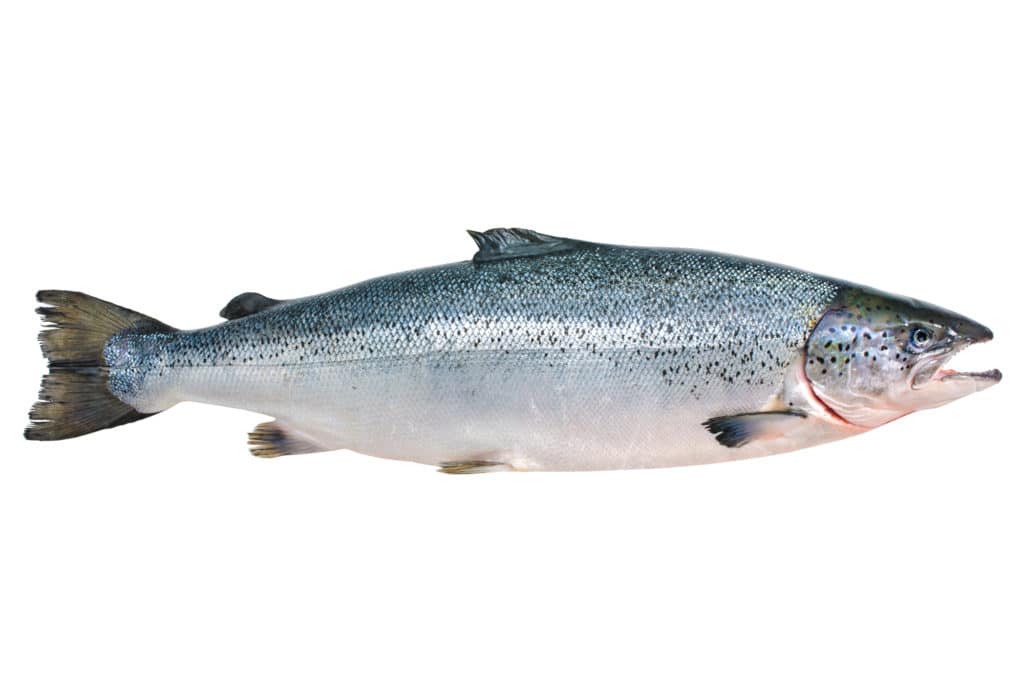
Can hamsters eat sardines?
Like salmon, sardines are also low in mercury (Source: U.S. Food and Drug Administration). Sardines are also an excellent source of calcium, iron, potassium, and Vitamin A. So, hamsters can eat sardines.
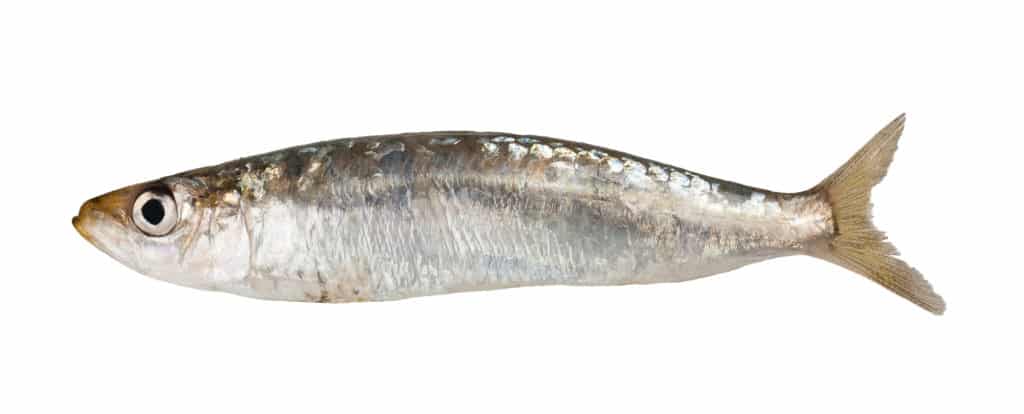
Can hamsters eat tuna?
Tuna are also omnivorous fish. But they are also a top predator. A tuna basically eats anything that’s smaller than it. So, since they are near the top of the marine food chain, the mercury in the smaller fish they eat adds up. Hence, tuna can contain high amounts of mercury, which your hamster’s body may be unable to withstand. So, it’s better not to give tuna to your hamster.
However, not all types of tuna are high in mercury. While bigeye, yellowfin, albacore, and white tuna are rich in mercury, skipjack contains comparatively less mercury. So, if you really want to give tuna to your hamster, go for skipjack tuna.
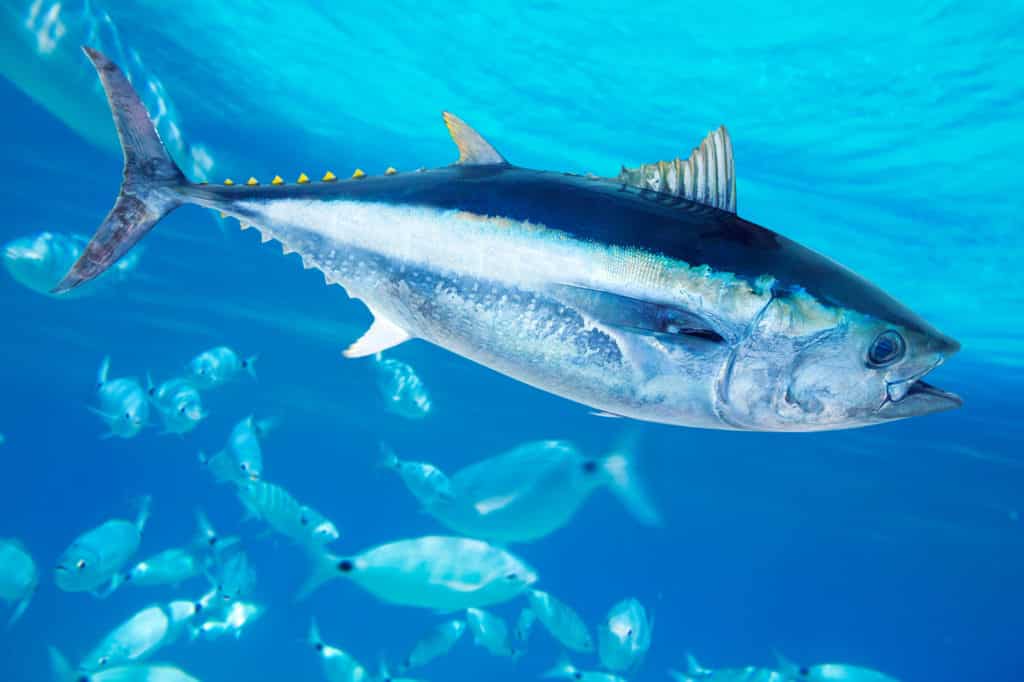
Can hamsters eat mackarel?
Mackerel is a fish that can grow pretty big in size, especially king mackerel (up to 6 feet long), which contains a lot of mercury. But not all kinds of mackerel grow that big. Pacific mackerel, for example, are comparatively smaller than king mackerel and grow up to just two feet long. So, small pacific mackerel is safe for hamsters to eat.
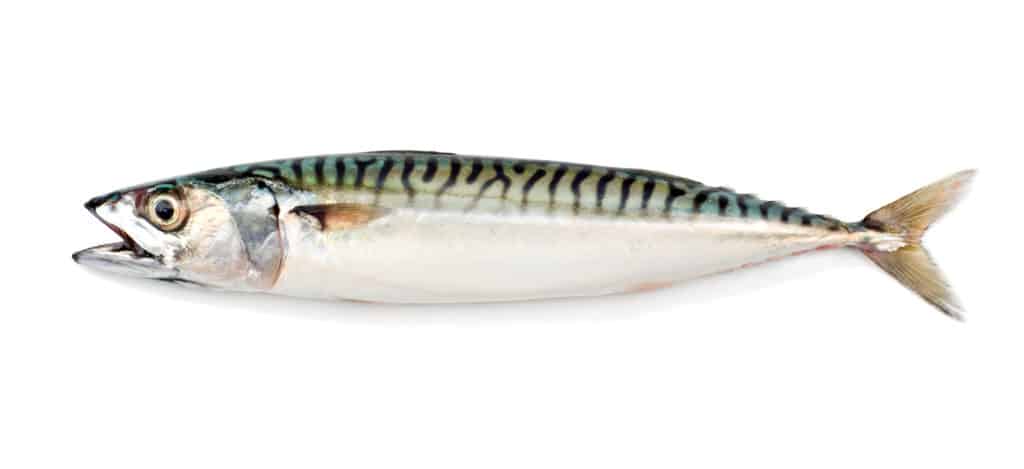
Can hamsters eat shellfish?
Shellfish, like crabs, oysters, shrimps, etc., can often contain heavy metals like mercury and cadmium. Even though shellfish do not have as much mercury as other larger fishes, they can contain a high amount of cadmium, which is also dangerous. Depending on the place they are caught, shellfish can contain cadmium levels almost twice the recommended daily intake for humans. So, they can be very dangerous for our little furry friends.
Moreover, shellfish can contain a high amount of pathogens, which can be hazardous even for humans when not cooked properly. In the three decades leading up to 2006, mollusks (a type of shellfish that includes mussels, oysters, clams, and scallops) were responsible for over 45% of seafood-related illnesses (Source: Healthline). Moreover, just like humans, some hamsters might also be allergic to shellfish. So, it is better to not give shellfish to your hamster.
Can hamsters eat shrimp?
Even though shrimps are shellfish, too, some pet owners find it okay to give shrimps to hamsters (Source: Hamster hideout). After all, shrimps are one of the aquatic fauna that contains very less mercury. Moreover, they have good amounts of iron, calcium, Vitamin A, and Vitamin C as well. So, you can give your hamster shrimps. But what matters is where you get the shrimps from.
You should be careful about where the shrimps come from. Wild shrimps can be dangerous because they can contain harmful bacteria and parasites that can be deadly for hamsters. Moreover, saltwater shrimps can contain a lot of salt. So, freshwater shrimp grown in hygienic farms is the healthier option.
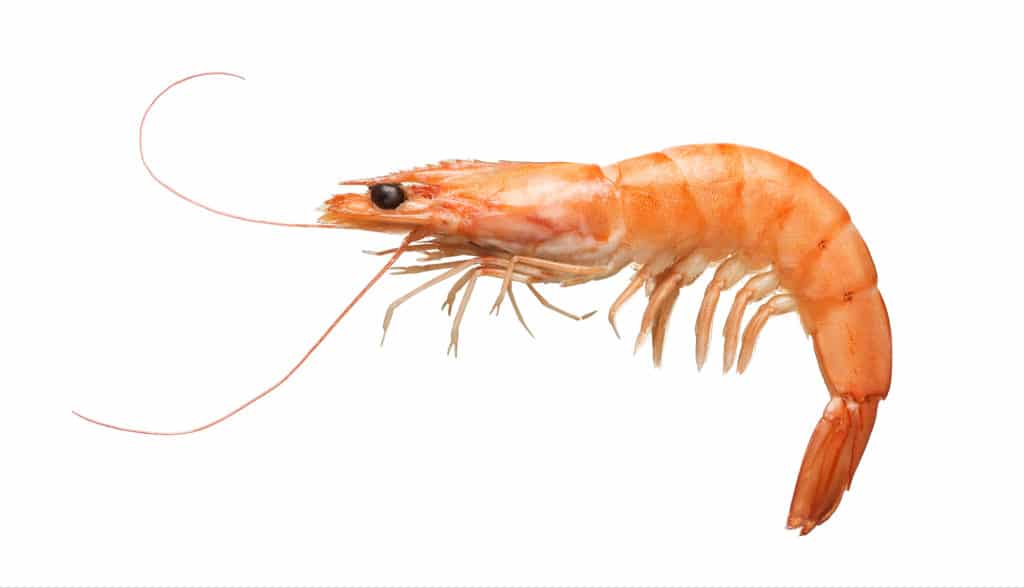
You can also buy dried shrimp from pet stores (Source: Hamster geek). That way, you can be sure that the shrimps are safe for your hamster to eat.
But you should remember that shrimps are rich in cholesterol. So, you shouldn’t give shrimps too often to your hamster.
Can hamsters eat cod?
Like salmon, cod is another fish that is low in mercury. Moreover, it contains high amounts of Vitamin D and omega-3 fatty acids. So, you can give cod to your hamster.
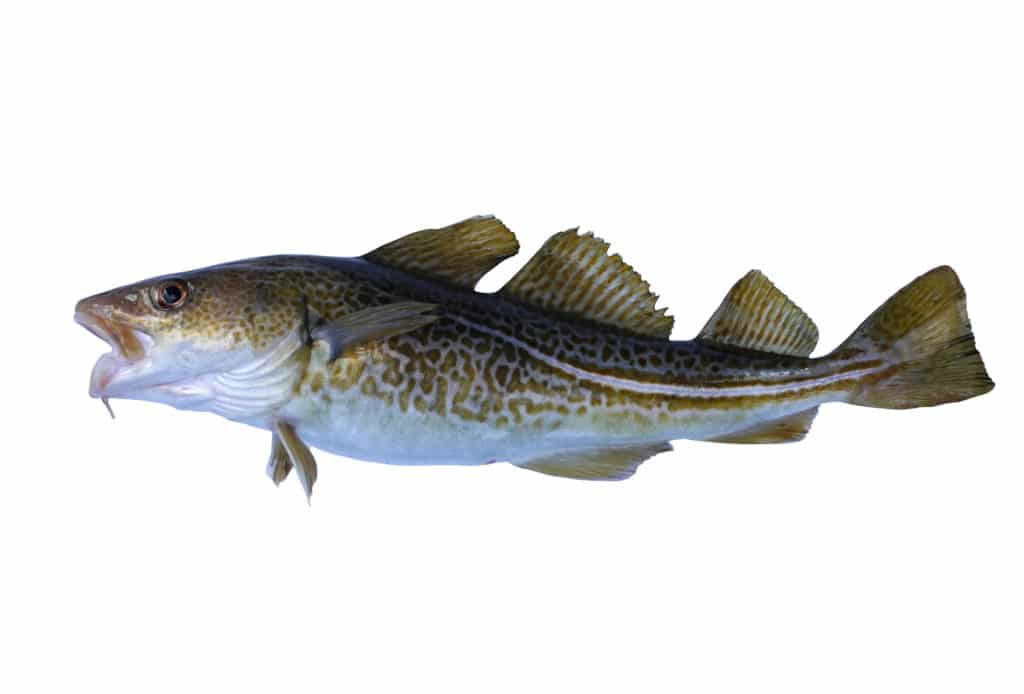
Can hamsters eat raw fish?
Raw fish can contain harmful pathogens like bacteria and parasites. So, you should always cook fish properly before giving it to your hamster. Never give raw or insufficiently cooked fish to your hamster.
Can hamsters eat canned fish?
Canned fish is often preserved in vegetable oil or salt water. Even though they are not dangerous for humans, these preservatives can be deadly for hamsters. So, never give canned fish to your hamster (Source: The Pet FAQ).
Can hamsters eat fried fish?
Not only does fried fish contain oil, but the batter can contain a lot of calories and unhealthy fats as well. So, you should not give fried fish to your hamster.
Can hamsters eat fish fingers?
For the same reason mentioned above, you should not give fish fingers to your hamster.
Can hamsters eat fish sticks?
As mentioned above, fried fish sticks can contain a lot of oil, unhealthy fats, and calories. So, do not give fish sticks to your hamster.
Can hamsters eat dried fish?
Some pet owners feed dried and freeze-dried fish (like tuna, shrimps, etc.) to their hamsters without encountering any problems (Source: Idiarco). So, you can give your hamster dried fish. But you have to make sure that it is not salted.
Can hamsters eat sushi?
Sushi can contain raw fish, including lobsters, etc., that can contain harmful bacteria. So, you should never give sushi to your hamster.
Do hamsters need to eat fish?
Fish is not a food item that hamsters absolutely need to eat. After all, wild hamsters never taste fish in their lifetime. So, hamsters can live healthily, even if you never give them fish. Just make sure you give a balanced diet to your hamster even if you don’t give him fish.
Give him the commercial pellets available in pet stores. They contain all the nutrients that a hamster’s body needs. But you shouldn’t give your hamster only pellets. Also, give him hay so that he has something to munch on. Don’t forget to add fresh foods like fresh vegetables and fruits to his diet, either. This adds variety to your hamster’s diet and is healthy for your hamster as well.
But avoid giving junk food that contains too much oil, sugars, unhealthy fats, and/or salt because they can cause not only weight gain but also hazardous health problems.
Summary
Fish is a great source of omega-3 fatty acids, protein, Vitamin D, iodine, iron, zinc, magnesium, and selenium, which are all essential for the body to function properly.
But fish can also contain methyl mercury, which is dangerous for humans and hamsters alike. So, fish shall never be made part of a hamster’s regular diet. It can only be used as an occasional treat.
You should also choose a type of fish that contains less mercury, like salmon, sardines, etc. You should also make sure that you cook the fish properly. If not, harmful bacteria, which the fish might have been infected with, can infect your hamster too.

